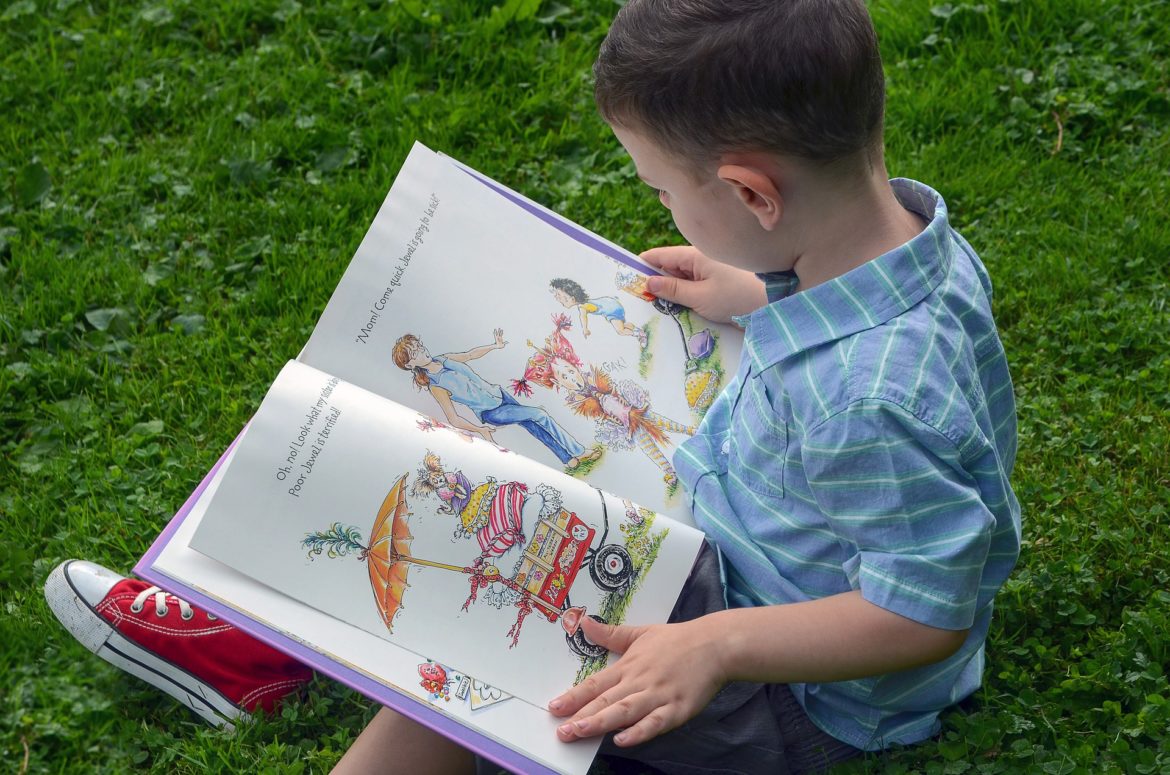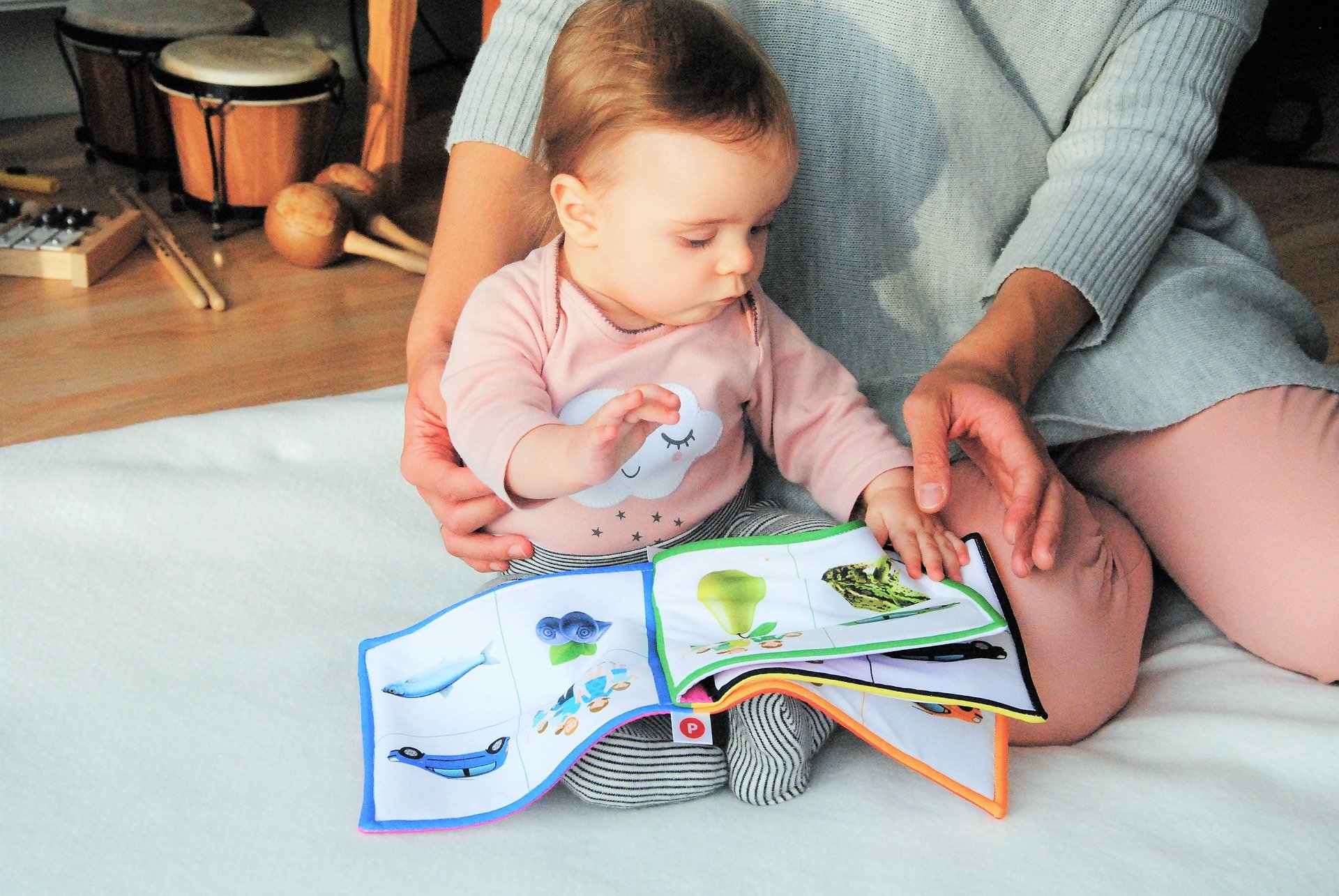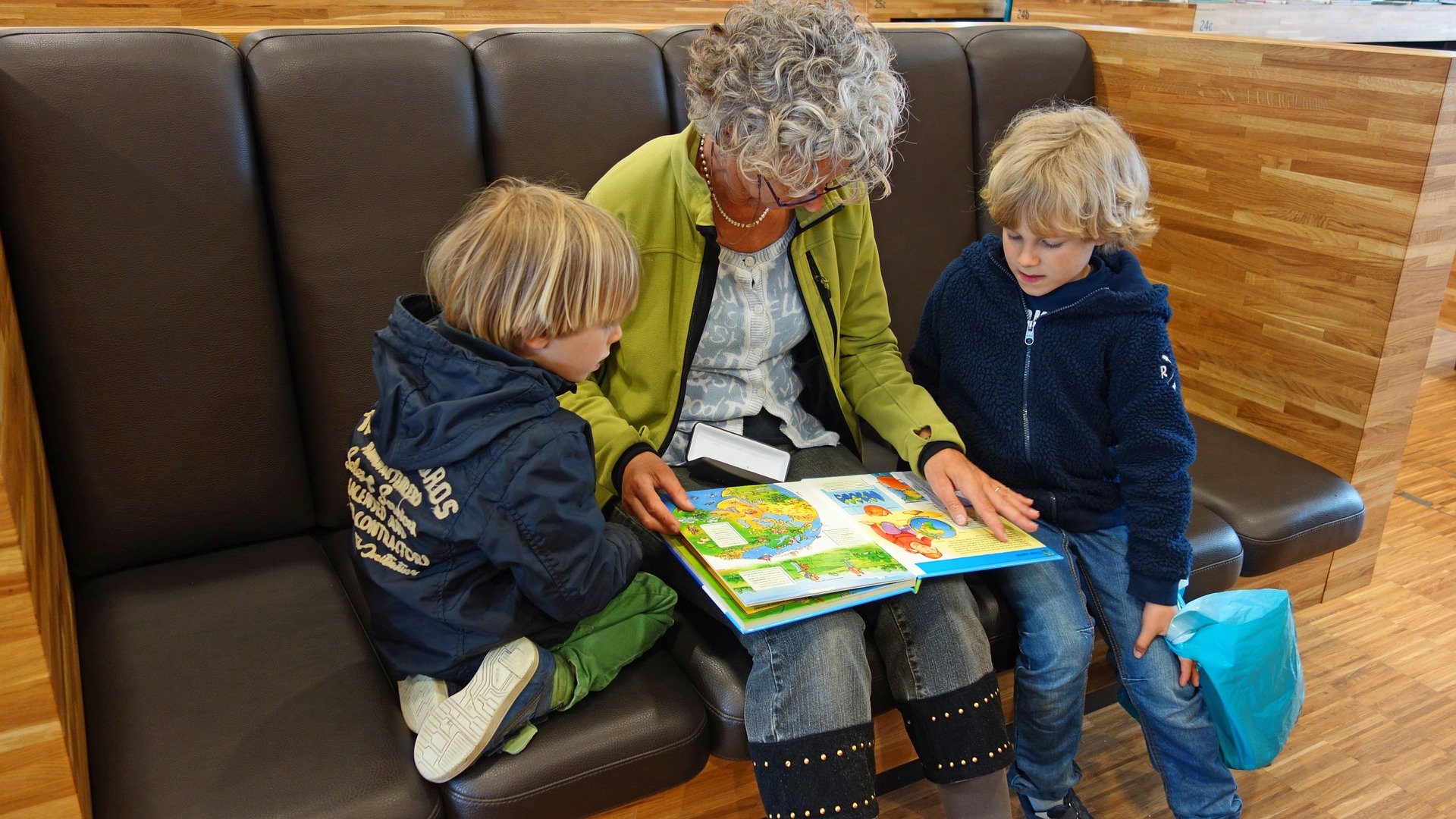

My name is Kozett and I’m currently doing the CAP Accompagnant Éducatif Petite Enfance training with the Paris Institute of Childcare Training and Le Répertoire de Gaspard. In the evenings I look after two boys aged 2-3 years old and I teach them English. This is why I thought it’ll be a good idea to write about how English-speaking childcarers can encourage learning through reading, helping the little ones they accompany to acquire English in a fun and enjoyable way.
First of all, it is important to understand how children acquire languages between the age of 1 to 3 years. In these first years, their development is very fast. They start to say their first words between 12-16 months. They use words they heard from their environment, mostly from their parents, and use them to express their desire for something, for example, an apple or water. Although they develop fast, they still don’t use as many words as they may be able to understand and their pronunciation is still not clear.
The next phase will be that they start using short phrases, with which they can be more precise about their desires, and express actions, like eating, drinking, or going. This happens between 18-24 months old. Often they point at things around them or in books and name them.
The next phase is from 2 to 3 years old. In these years sentences become more organized, usually, they build up from two to three words and they can pose questions as well. Their vocabulary expands quite rapidly and it takes less time to integrate new ones. They can understand more abstract expressions.
(See more in French here)

How to encourage children to acquire a second language in a fun way?
In these times, children’s attention is often attracted to screens (phone, Ipad, laptop). But I’d like to promote reading, which is a good way to learn language learning and also for bonding with the children. They can learn new words and phrases through fun and interesting stories while encouraging their imagination, self-confidence, and their curiosity about the world.
As a childcarer, how can you use reading activities to support the children in their acquisition of English?
To start, let’s make sure that we choose a book in English that matches their level. Too many unknown words may be overwhelming for the children. You can involve the child in choosing a book, and you are not limited to the words in the book – the images can be a springboard for your own creative storytelling or that of the child. The book itself should feel interesting for the child (interesting images, something that the child likes).
Interested in advice on how to choose an age-appropriate book? This website has some good tips click here
It is also important to choose a time for reading when it is calm and the children can focus their attention on the reading activity. Choosing a quiet moment of the day and a calm location can help make reading a calming activity that supports mindfulness in addition to the development of the child. You can even set up a “reading corner” in one of the rooms – books to choose from, cushions on the floor … all to make reading feel like an enjoyable moment of the day.
While reading stories in English, speak slowly and make sure the children understand. Ask them to repeat back words, point to images in the book, and ask them to describe what they see. We can use facial or physical gestures to help them understand the context better, and also so that the activity is fun. . It is also a good thing from time to time to ask them simple questions to know their understanding of the story or answer their questions if they have them or correct them in case their pronunciation isn’t correct. Encourage them to use gestures and to point, so that you can communicate non-verbally. Doing All of this kindly and with a calming voice builds their confidence and reassures them that making “mistakes” and asking questions is not a bad thing.
Learning through reading stories, children can acquire lots of new vocabulary, all while having fun. In my experience, this contributes enormously to their development. It helps establish bonds with the children, supports their language acquisition.
By Kozett Palmai CAP 2020/2021




